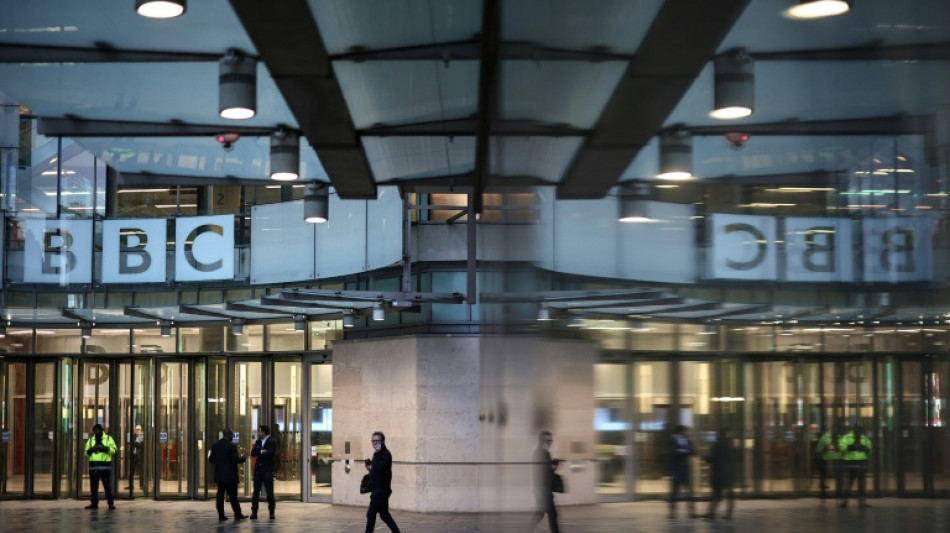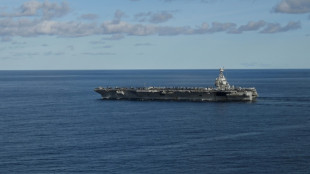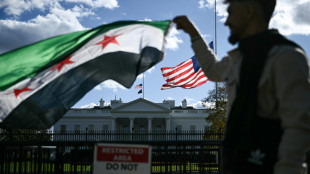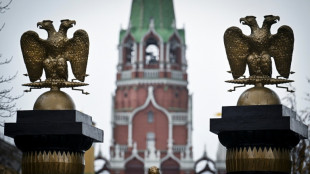

BBC must 'fight' for its journalism, outgoing chief says amid Trump lawsuit threat
The BBC's outgoing boss urged staff to "fight" for its journalism Tuesday as the broadcaster grappled with how to respond to Donald Trump's threat of a lawsuit over a misleading edit of the US president.
Tim Davie's rallying cry came after Trump threatened to sue the BBC for $1 billion in a row that has renewed pressure on an organisation that is regularly used as a political football and often caught up in culture wars.
The controversy also lifted the lid on tensions at the top of the renowned institution over the coverage of issues such as the war in Gaza, and put the British government in a tricky spot with its closest ally.
"I see the free press under pressure, I see the weaponisation. I think we've got to fight for our journalism," outgoing director general Davie reportedly told staff, two days after he and BBC News CEO Deborah Turness resigned over the furore.
On Monday, the BBC apologised for giving the impression that Trump had directly urged "violent action" just before the assault on the US Capitol by his supporters in 2021 in a documentary that aired in October last year.
Trump's lawyers wrote a letter to the BBC, giving it until Friday to "appropriately compensate" the president for "harm caused" by the edit, or face a $1 billion lawsuit for damages.
In his address to staff, Davie admitted the broadcaster had made "some mistakes that have cost us" and conceded that times were "difficult", the BBC reported.
But he added: "We will thrive and this narrative will not just be given by our enemies: It's our narrative," according to UK media.
The BBC, which is funded by the British public, has faced growing accusations of bias from different ideological camps.
- Board divisions -
The latest crisis, which spiralled after the Daily Telegraph last week leaked a memo by former BBC advisor Michael Prescott, has also laid bare some of the divisions within the BBC and its board.
In his report, Prescott raised concerns about anti-Israel bias in the BBC's Arabic service, coverage of the Gaza war, and its reporting on trans issues, among others.
In a public apology for the Trump speech edit, BBC chair Samir Shah on Monday said the broadcaster had taken steps to address other issues in Prescott's memo, vowing to reform oversight within the organisation.
Some current and former BBC journalists have blamed right-wing board members for leading the charge that the BBC is "institutionally biased" -- an allegation that Turness denied.
However, Mark Urban, a former BBC editor and presenter, suggested in a blog that "culture wars" and liberal voices were also at fault for the lapses.
The row comes at a politically sensitive time for the BBC, which is due to renegotiate the Royal Charter that outlines the corporation's governance. Its current charter will end in 2027.
Davie said that despite recent controversies -- which have prompted calls for changing the licence-fee funding model that the BBC depends on -- the broadcaster was in a "really good position to get a good charter".
UK Prime Minister Keir Starmer's Labour government is performing a difficult tight-rope act between backing the public service broadcaster's independence without being seen to side with it against Trump, who it has studiously sought to keep on side.
Culture minister Lisa Nandy was due to make a statement to parliament about the row later Tuesday.
Trump has been accused of waging a hostile campaign to stifle US news and media organisations since returning to power in January, and his lawyers are threatening to sue the BBC in Florida.
They would be too late to file a lawsuit in the UK, where there is generally a one-year time limit for bringing libel claims, given that the documentary was aired in the UK in October 2024.
But Trump would face other challenges. Media and defamation lawyer Matthew Gill told AFP the Panorama documentary would likely have had a "very small audience" in the United States, making it harder to prove harm caused to Trump.
(N.Davids--TPT)




